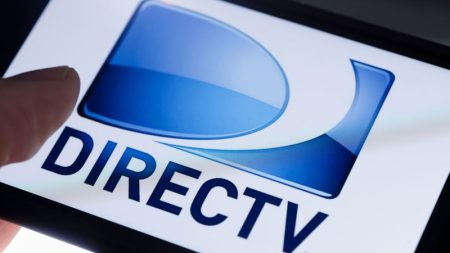Unlock the Editor’s Digest for free
Roula Khalaf, Editor of the FT, selects her favourite stories in this weekly newsletter.
Samsung Electronics expects to post a 10-fold jump in first-quarter operating profit as memory chip prices stage a strong recovery after the industry’s worst downturn in decades last year.
The world’s largest maker of memory chips by sales estimated on Friday that operating profit surged 931 per cent to Won6.6tn ($4.9bn) in preliminary numbers for the first three months of this year. That was better than analysts’ expectations of Won5.7tn, according to LSEG SmartEstimates. Sales rose 11.4 per cent to Won71tn from a year earlier.
The upbeat estimates mark Samsung’s highest earnings since the third quarter of 2022 as its chip division is likely to post its first profit in five quarters. Samsung shares were trading 0.7 per cent lower on Friday morning after rising about 30 per cent over the past year. Detailed results will be announced at the end of the month.
Production cuts by major producers and strong demand for high-performance chips amid an artificial intelligence boom buoyed chip prices. Dram memory chip prices rose about 20 per cent in the first quarter, while those of Nand flash memory chips, used for data storage, gained 23-28 per cent, according to data provider TrendForce.
Analysts forecast Samsung’s chip division will post an operating profit of about Won900bn in the first quarter, compared with an operating loss of Won2.2tn in the December quarter.
“We are seeing a stronger than expected recovery in the memory cycle, with a higher than expected rise in memory chip prices,” said Roko Kim, an analyst at Hana Financial Investment. “It will be a year of maximum Dram earnings with surging Nand prices.”
The $160bn memory chip market recovery was highlighted by Micron’s strong sales forecast last month, with the US chipmaker predicting record sales in 2025. Samsung shares have also been buoyed by easing concern over its competitiveness in high bandwidth memory (HBM), after Nvidia chief Jensen Huang said last month that his company was in the process of qualifying Samsung’s new HBM chips for its graphics processing units.
Samsung is trying hard to catch up with rivals in the high-margin chips used in AI as it has trailed domestic rival SK Hynix in mass-producing the most advanced HBM chips.
Kyung Kye-hyun, the company’s chief executive in charge of its chip business, said last month that Samsung was close to claiming leadership in HBM chips. He also told a shareholder meeting that the company expected more than $100mn of revenue from its advanced chip packaging business this year.
“Samsung is making progress in the HBM business, which has been seen as its Achilles heel,” said Lee Seung-woo, an analyst at Eugene Investment & Securities.
Lee added that Samsung’s lossmaking chip foundry business was still weighing on the company’s earnings, but he expected the contract manufacturing division to turn profitable in the second half of this year.
Samsung, which is building a foundry in Texas, is expected to receive at least $5bn in grants from the US, while domestic rival SK Hynix is investing about $4bn in an advanced AI chip packaging plant in Indiana.
Samsung’s strong earnings have also been driven by robust sales of its latest AI-driven smartphones. The company in January launched its Galaxy S24 Android phones capable of running generative artificial intelligence features “on-device”, helping Samsung to regain the top spot in global smartphone sales in February.
Read the full article here



